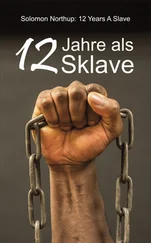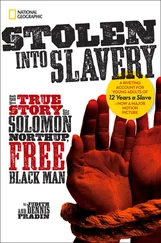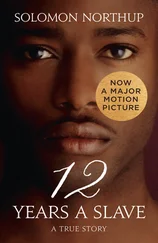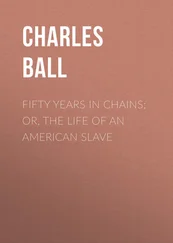Solomon Northup - Twelve Years a Slave
Здесь есть возможность читать онлайн «Solomon Northup - Twelve Years a Slave» — ознакомительный отрывок электронной книги совершенно бесплатно, а после прочтения отрывка купить полную версию. В некоторых случаях можно слушать аудио, скачать через торрент в формате fb2 и присутствует краткое содержание. Жанр: unrecognised, на английском языке. Описание произведения, (предисловие) а так же отзывы посетителей доступны на портале библиотеки ЛибКат.
- Название:Twelve Years a Slave
- Автор:
- Жанр:
- Год:неизвестен
- ISBN:нет данных
- Рейтинг книги:5 / 5. Голосов: 1
-
Избранное:Добавить в избранное
- Отзывы:
-
Ваша оценка:
- 100
- 1
- 2
- 3
- 4
- 5
Twelve Years a Slave: краткое содержание, описание и аннотация
Предлагаем к чтению аннотацию, описание, краткое содержание или предисловие (зависит от того, что написал сам автор книги «Twelve Years a Slave»). Если вы не нашли необходимую информацию о книге — напишите в комментариях, мы постараемся отыскать её.
Twelve Years a Slave
Twelve Years A Slave
An insightful introduction by David Fiske reveals the world into which Northup was born, the kidnapping phenomenon to which he fell victim, and the legacy of slavery today.
Twelve Years a Slave — читать онлайн ознакомительный отрывок
Ниже представлен текст книги, разбитый по страницам. Система сохранения места последней прочитанной страницы, позволяет с удобством читать онлайн бесплатно книгу «Twelve Years a Slave», без необходимости каждый раз заново искать на чём Вы остановились. Поставьте закладку, и сможете в любой момент перейти на страницу, на которой закончили чтение.
Интервал:
Закладка:
It had been my hope that with the film's success, my research would gain attention and that some helpful person would come forward and shed light on the most aggravating aspect of my Northup quest: the circumstances of his death. Though I have received some information, the mystery of his final years is yet to be solved.
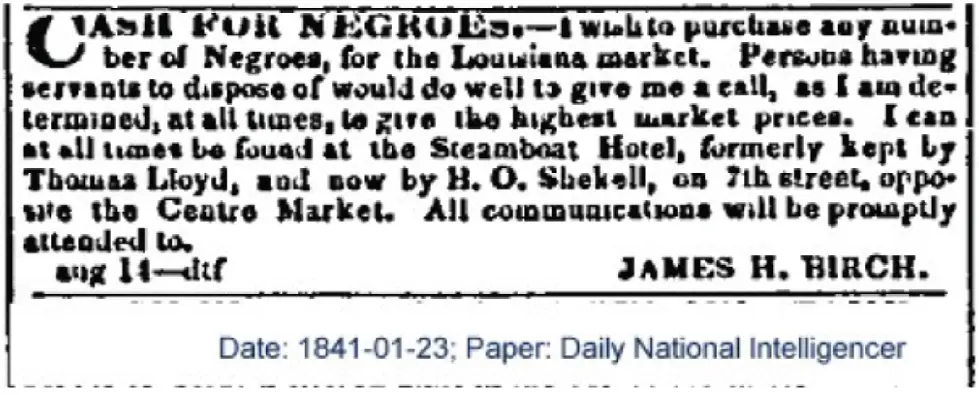 Advertisement placed by James H. Birch, the slave dealer who originally purchased Solomon Northup. From Birch's slave pen in Alexandria, Virginia (now the Freedom House Museum), Northup was sold on to slave dealers in Louisiana.
Advertisement placed by James H. Birch, the slave dealer who originally purchased Solomon Northup. From Birch's slave pen in Alexandria, Virginia (now the Freedom House Museum), Northup was sold on to slave dealers in Louisiana.
SOLOMON NORTHUP
What was Northup, the man, actually like? Information on his personality can be gleaned from several sources. There is, of course, his own narrative, which gives the impression that he was hard-working, affable, observant, and highly intelligent. He was generally well-respected, even by those who knew him only as a slave. In addition to Northup's own words, we have the accounts of those who knew him, or who had encountered him. There is also a documentary record which provides insight on aspects of his personality and behavior.
At the back of Twelve Years a Slave , transcriptions are included of affidavits sworn to by numerous individuals from the town where he had grown up. These describe him – and also his wife, and his father Mintus (a former slave) – as being well-respected in the community. Henry B. Northup, the white attorney who made the arduous trip to Louisiana to find and free Northup (and who was intent on bringing to justice the two men who had lured Northup away from Saratoga Springs), stated that he was “well acquainted with said Solomon … from his childhood.”
Even as a slave, Northup gained the respect of others for his abilities, and was seen as a reliable person. Somewhat surprisingly, his plantation master Edwin Epps, when talking to Union soldiers during the Civil War, admitted that Northup's book was largely true, and described Northup as “an unusually 'smart nigger’”. (1)
In the film 12 Years a Slave , Northup is portrayed before his kidnapping as being virtually a concert violinist. In fact, fiddling was never more than a moonlighting job for Northup, who played at country dances as opportunities arose. Primarily, he earned a living through manual labor: farming, working on railroad and canal projects, driving a carriage, and transporting materials via raft on the Hudson River. Aside from the problems and restrictions he faced due to being black, he was a typical working man of the nineteenth century.
Northup neglects to inform us of some aspects of his pre-slavery life. At about the time he was a farmer in Washington County, he became indebted to the point that legal proceedings were started against him. While living in Saratoga Springs, he had some run-ins with the law (according to local records, which are frustratingly short on details). At one point he was fired from a rafting job because the man who had hired him believed he was too inebriated to safely guide the raft. Northup took the man to court, and witnesses testified that Northup had indeed been drinking, but not to the point that he couldn't have handled the raft. Northup won the case. Such behaviours were not atypical of men in those times, and do not detract from Northup's reputation for being clever, reliable and popular.
Little in his book has been contradicted by other sources, except for a misspelled name here and there, and a couple of misstated dates. Some of the events he mentioned had occurred nearly a dozen years before he penned his narrative, and yet he correctly recalls numerous persons and places. He describes in detail his construction of a raft, the design of a fish trap he built, the difference between axes used in the North and in the South, and the methods of planting and harvesting various crops raised in Louisiana, including cotton and cane. These suggest a man interested in the tools and undertakings around him, and an urge to completely understand them.
With no way to record the things he experienced while enslaved, Northup had to rely on his impressive memory. Indeed, it would not be surprising if he rehearsed facts and impressions frequently in his mind, so as to sear them into his memory and someday share everything that had happened. If so, it suggests a man who maintained a degree of positivity and optimism even through an interminable twelve years of misery.
LIFE PRE-SLAVERY
Prior to his kidnapping, Northup was far from being an anti-slavery activist. In discussing his time in Saratoga Springs, he makes mention of slaves he encountered who had accompanied their Southern masters to that resort town. He was sometimes asked for advice on how they could escape their masters. In his first chapter, Northup tells us that “I could not comprehend the justice of that law, or that religion, which upholds or recognizes the principle of Slavery; and never once, I am proud to say, did I fail to counsel any one who came to me, to watch his opportunity, and strike for freedom.”
Generally, Northup seems to have been occupied with earning enough money to support his family. Living in a resort town, work was harder to find in the winter months, and his was probably a hardscrabble existence at times. There would not have been much time or energy left to agitate against slavery.
The life of a free black person in the North was far from ideal. In New York State, there had been a requirement that, in order for any man to vote – regardless of his color – he must own a certain amount of property. In 1822, the state's constitution was amended and the property ownership criterion was removed for white voters – but not for blacks. (Hence the mention in Northup's first chapter that his father, being a property owner, had been entitled to vote.) There were many other limitations on African Americans, but they tended to be social rather than legal. Northup includes a few digs at these in his book. In Chapter I, he points out the respect his father had earned, despite having been a slave “and laboring under the disadvantages to which my unfortunate race is subjected …” Mintus had pursued farming, rather than having sought “employment in those more menial positions, which seem to be especially allotted to the children of Africa.”
AFTER PUBLICATION
Despite these subtle reminders of the racism that existed in America, Northup's book is not a diatribe against slavery. In the year it was published, 1853, a local newspaper observed that “Its tone is much milder than we expected to see exhibited … but, while he seems to fully realize the magnitude of his sufferings, he does not condemn all.” (2)
Surprisingly, Northup exhibited little bitterness over what had befallen him. For several years after the publication of Twelve Years a Slave , he traveled throughout the northeastern states, telling the public about his time as a slave. When he gave a lecture in Vermont in 1855, someone who had heard it said it “was wholly without vituperation, or even harshness …” (3)
In reports of his appearances, he was generally described as someone who spoke plainly and with directness. One newspaper writer noted “his unaffected simplicity, directness and gentlemanly bearing.” As was true of his book, Northup's straightforward and objective presentation was more impressive “than many fervid appeals to which we have listened.” (4) His approach in his book and his lectures was to stick to the facts, allowing others to reach their own conclusions about slavery.
Audiences were impressed with his storytelling talents. “Northup tells his story in plain and candid language, and intermingles it with flashes of genuine wit. It is a sure treat to hear him give some hazardous adventure, with so much sans [sic] froid, that the audience is completely enraptured and the ‘house brought down.’” (5) Those who listened to his lectures seemed to share the opinion of his neighbors who had provided affidavits in his favor: that he was trustworthy and intelligent.
Читать дальшеИнтервал:
Закладка:
Похожие книги на «Twelve Years a Slave»
Представляем Вашему вниманию похожие книги на «Twelve Years a Slave» списком для выбора. Мы отобрали схожую по названию и смыслу литературу в надежде предоставить читателям больше вариантов отыскать новые, интересные, ещё непрочитанные произведения.
Обсуждение, отзывы о книге «Twelve Years a Slave» и просто собственные мнения читателей. Оставьте ваши комментарии, напишите, что Вы думаете о произведении, его смысле или главных героях. Укажите что конкретно понравилось, а что нет, и почему Вы так считаете.






